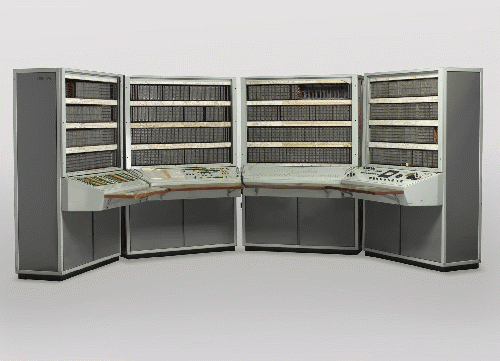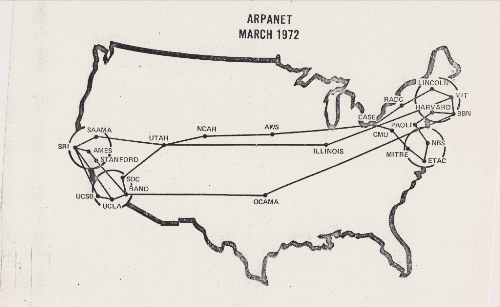Back in 1968, DARPA contracted for a world-wide computer network. The easiest and the best-studied architecture for the network would be hub-and-spoke. Every communication comes into a central computer that directs it out toward its intended recipient. But this was the height of the Cold War, and DARPA was thinking in terms of survivability in case of a nuclear war. If the Soviet Union were to bomb our central hub, then all communications would go out around the world.
Based on this reasoning, DARPA chose a decentralized architecture for what has become the Internet. There is no central hub. Every node in the network is responsible for receiving messages and helping to pass them along, even though the owners and users of that node have nothing to do with the messages they are helping to transmit.
Forty-eight years later, the Defense Department is ruing that decision as much as any it as ever made. No one foresaw that the room-sized, multi-million dollar computers of 1968 would someday be left in the dust by 30-dollar toys that grade school kids hold in their hands. No one foresaw that the Internet would be the backbone of global commerce.
An no one foresaw that the Internet would become the primary conduit through which people learn about events in their world.
Already in 1968, US Defense Department and intelligence agencies were deep in the business of managing public opinion. They had embraced the propaganda revolution celebrated by Edward Bernays a generation earlier. They had successfully used media control to divert America's eyes from the truth about the Kennedy assassination a few years earlier, and along the way had invented the meme "conspiracy theorist" to discredit anyone who doubted the impossibly contorted Warren Commission narrative.
We can be confident that no one in the 1972 security state foresaw that their decision about the architecture of the incipient Internet would have anything to do with narrative control in the 21st Century. And we, today, can be damn glad that they didn't.
Efforts to censor the internet are in high gear the last few years. We've lost the regulatory protection of net neutrality. Under the pretense of protecting the public from "fake news", our most heroic truthtellers have been de-platformed and demoted in Google searches and cut off from advertising dollars.
But we're hanging in there because it is ever-so-much harder to censor a decentralized web than a hub-and-spokes architecture. We're spiders hanging by a thread, but we have DARPA to thank for the thread.







